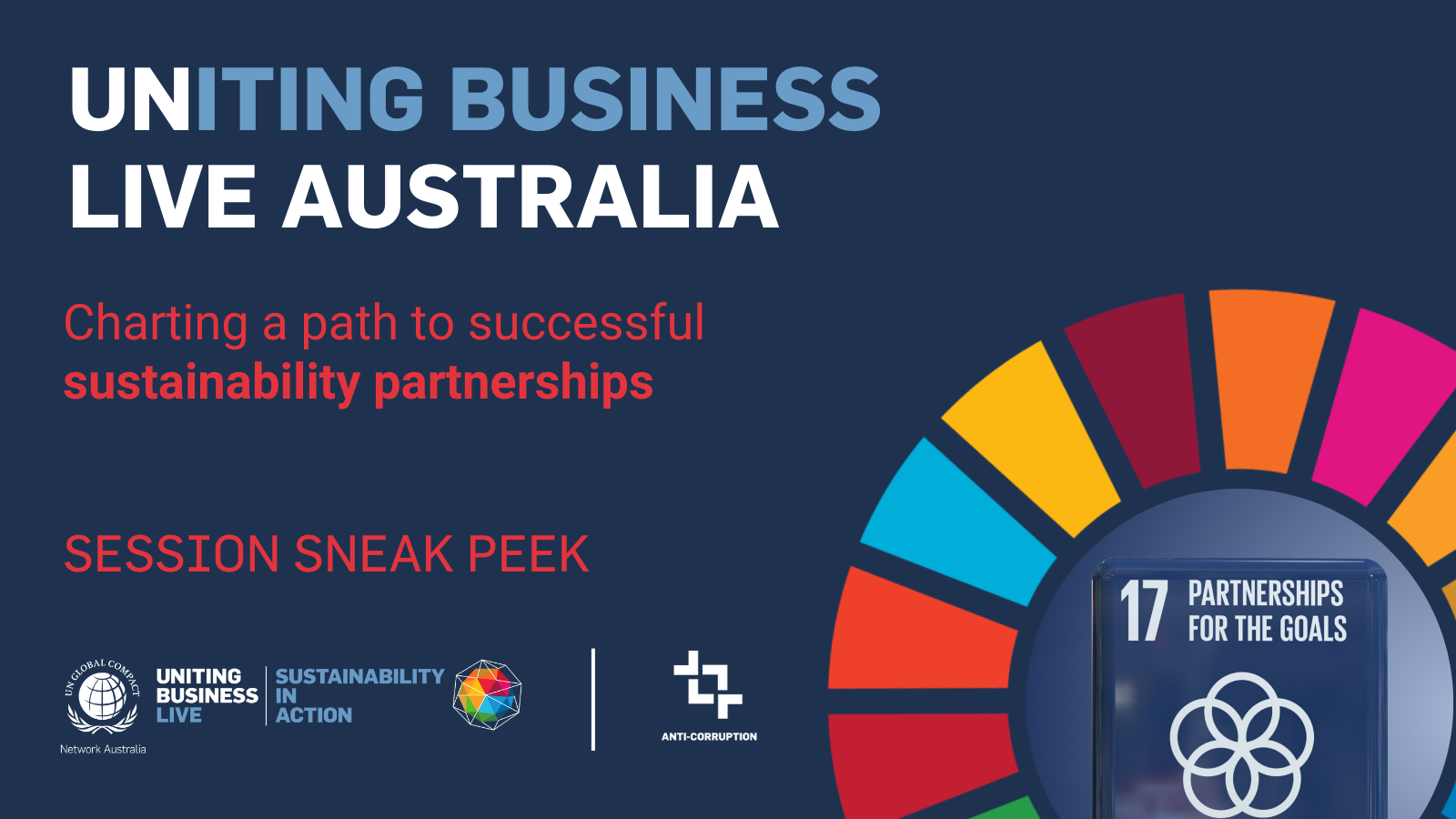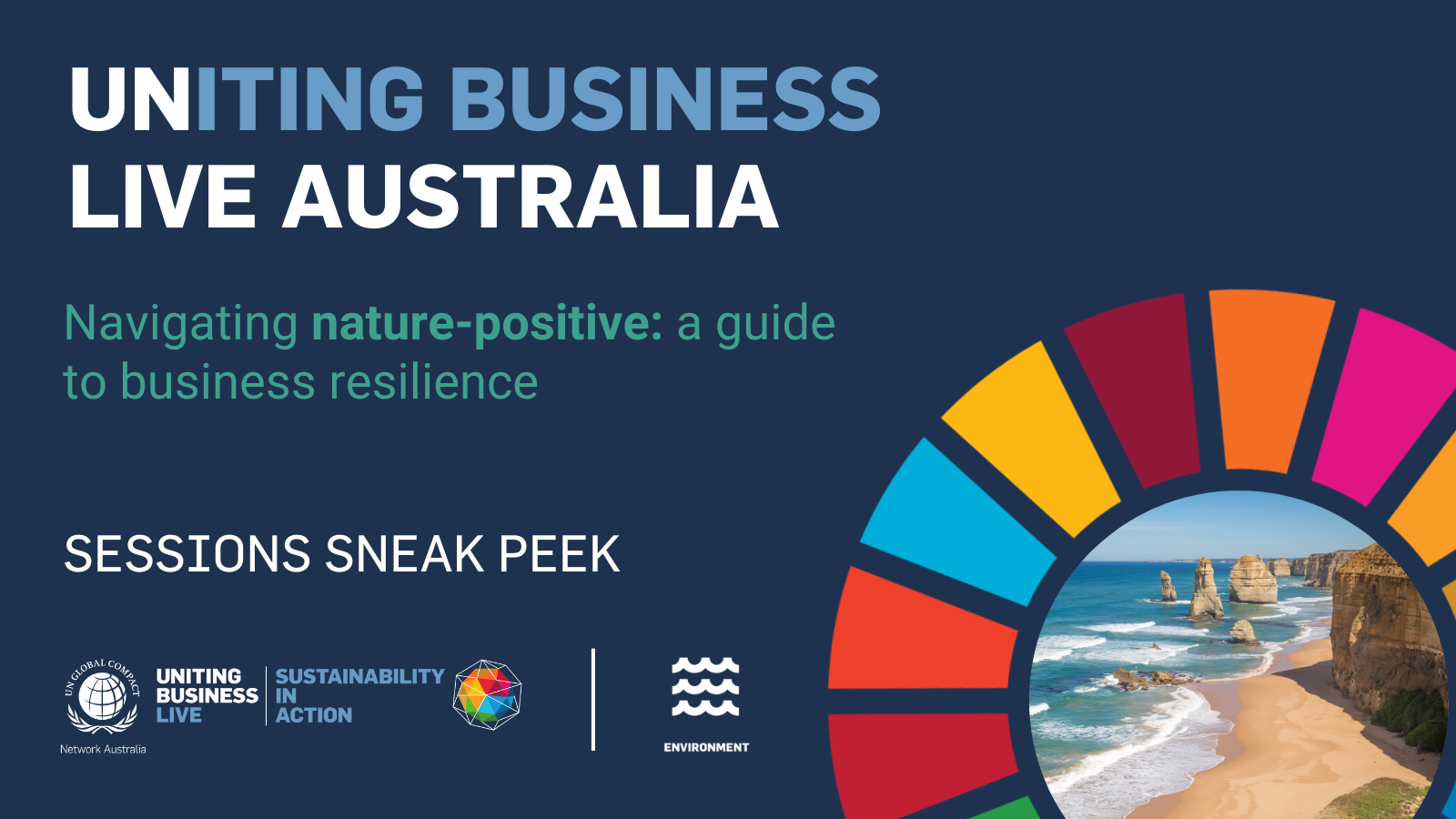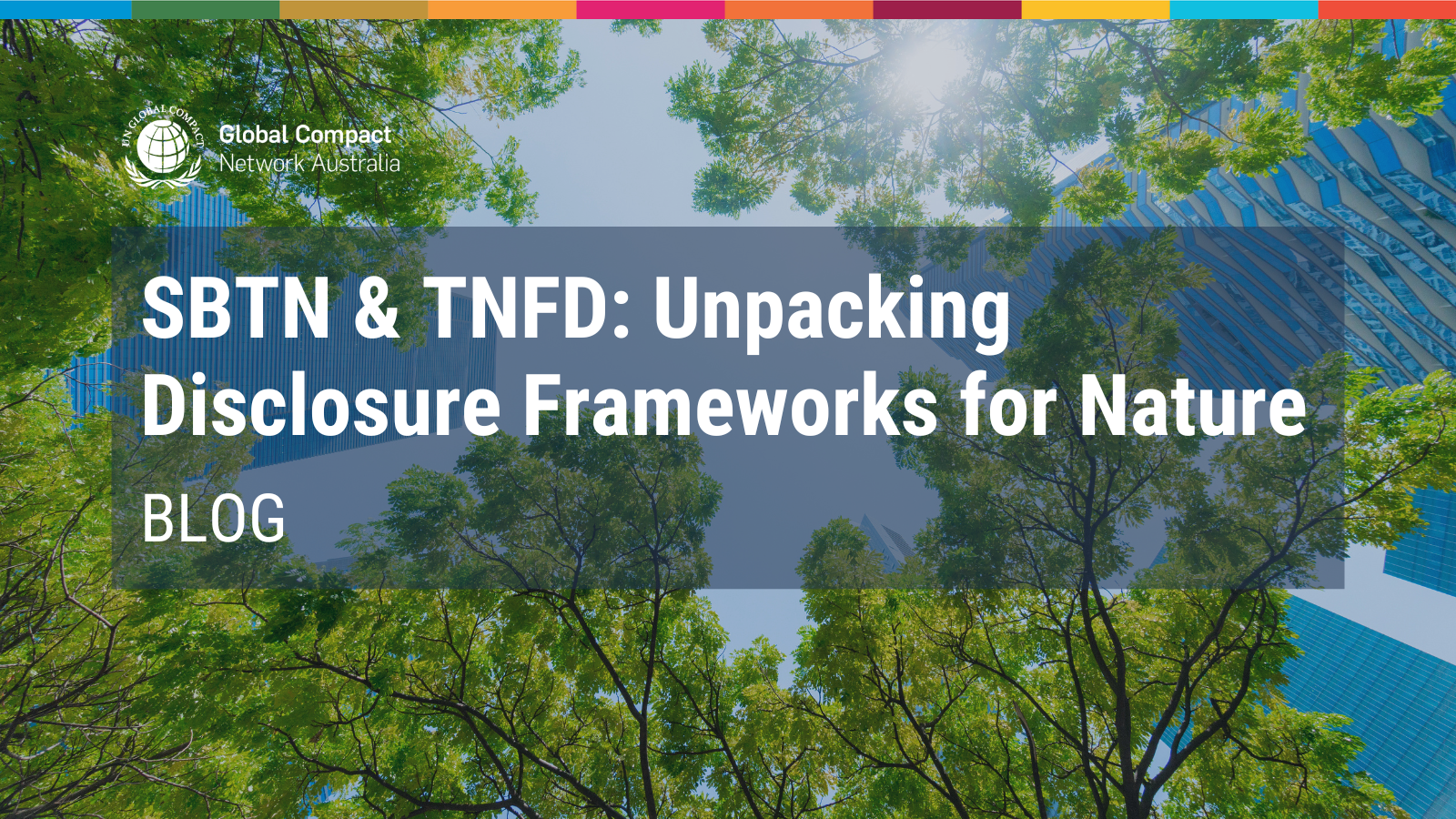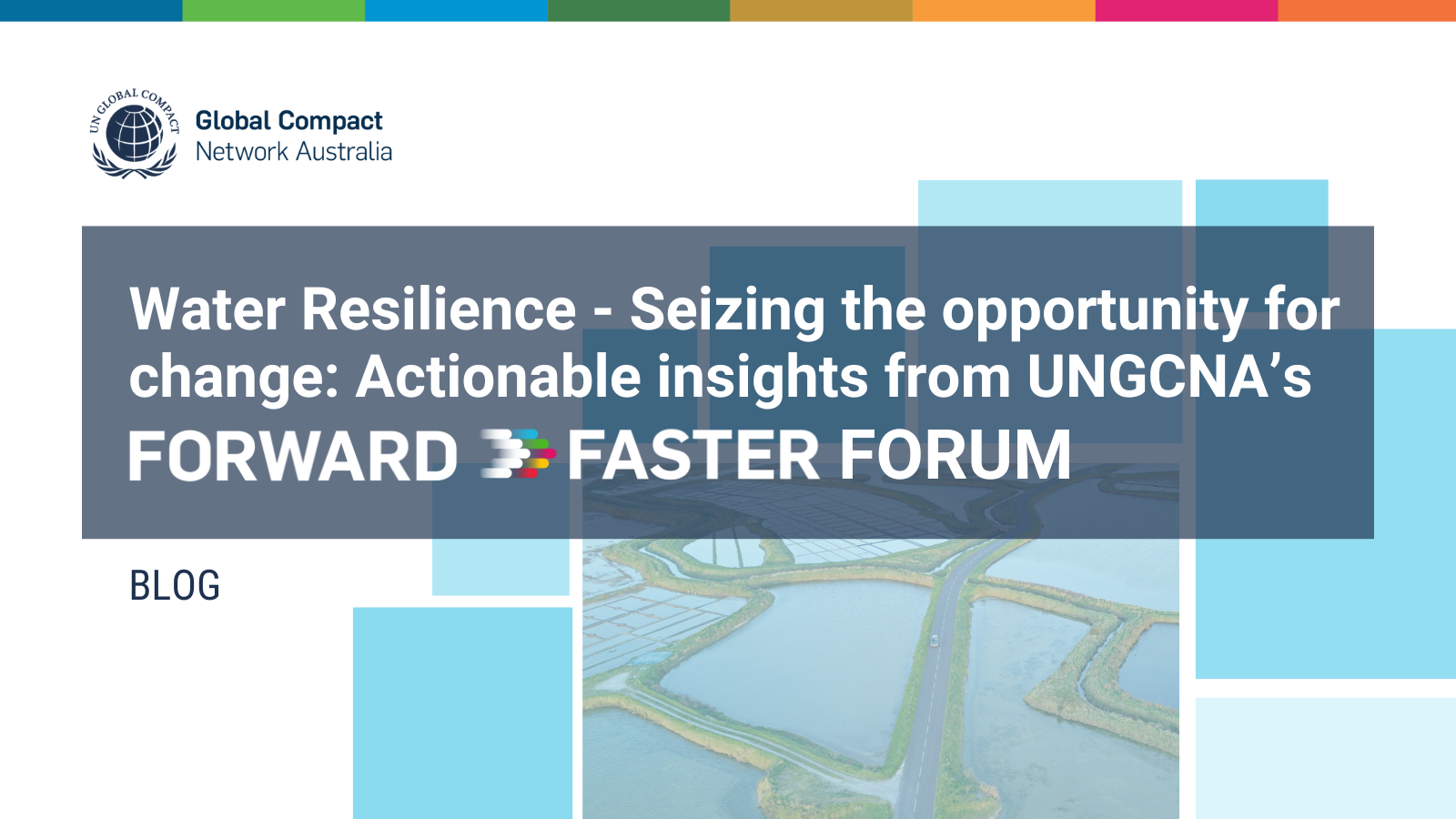
Blogs, Events, Sustainability Governance, Sustainable Development Goals
Blog | Charting a path to successful sustainability partnerships
Dan Wilcock | October 11, 2024
In alignment with SDG 17 – Partnerships for the Goals – collaboration between businesses is essential to help advance sustainability goals. Yet businesses need to keep a careful lookout in developing collaborative initiatives, to avoid foundering on the rock of competition law.
The value of sustainability partnerships
Tackling some of the toughest global challenges cannot be achieved by one company or sector alone. Working in partnership can often lead to greater impact.
Business collaborations are a crucial mechanism to achieve sustainable development, as contemplated by the Sustainable Development Goals (SDGs) that form the heart of the United Nations’ 2030 Agenda for Sustainable Development. Indeed, SDG 17 – Partnerships for the Goals – explicitly acknowledges the important role of multi-stakeholder partnerships that mobilise and share knowledge, expertise, best practice, technology and financial resources, to support the achievement of the SDGs. For example, multi-party collaborations may be the most effective way to quickly develop and bring to market new processes and technologies to support the shift to a more sustainable society.
The interplay with competition law
When planning and implementing collaborative initiatives on sustainability, businesses should take into account applicable competition laws and regulations.
Competition regulators around the world may scrutinise sustainability collaborations, particularly those involving competitors, for possible violations of “cartel” provisions that prohibit price-fixing, bid-rigging, market sharing and output restrictions.
In Australia, the Competition and Consumer Act 2010 (CCA) bans business behaviours that damage competition, including cartel agreements and other behaviours that substantially lessen competition.
However, it is critical to ensure that competition law does not function as an obstacle to sustainability collaborations, out of fear that businesses will be inappropriately subject to regulatory action by competition law enforcers.
For example, the UN Environment Programme’s Net-Zero Insurance Alliance (NZIA) was formally discontinued on 25 April 2024, after being undermined by allegations of antitrust / competition law violations in the United States. Responding to attacks on the NZIA, UN Secretary-General António Guterres observed:
“Fossil fuel companies must also cease and desist influence peddling and legal threats designed to knee-cap progress. I am thinking particularly of recent attempts to subvert net zero alliances, invoking anti-trust [competition] legislation.”
The Australian Competition and Consumer Commission’s approach
Governments are pivotal in providing clear reassurance that sustainability collaborations have an important and legitimate role – and outlining how competition law can better support the transition to a low-carbon economy and sustainability goals.
Following the lead from competition authorities overseas, on 8 July 2024, the Australian Competition and Consumer Commission (ACCC) released a draft Guide on a Sustainability collaborations and Australian competition law for public comment. The draft guide provides an outline of how Australian competition law might apply to sustainability collaborations, while relying significantly on the “authorisation” mechanism in Australian competition law. The ACCC may grant an authorisation for any conduct that could raise concerns under the competition provisions of the CCA when it is satisfied that the likely public benefit from the conduct outweighs any likely public detriment.
The ACCC received over 30 written submissions in response to the draft guide. The submission by the UN Global Compact Network Australia was developed after a consultation with business participants earlier this year and makes several suggestions to improve the guide. The ACCC is currently considering the feedback it has received and is aiming to publish a final version later this year.
Current Australian examples of sustainability collaborations
- Resiloop: ResiLoop is an initiative of the Australian Resilient Flooring Association to establish and operate a voluntary, industry-led product stewardship scheme to collect and recycle resilient flooring waste, funded by a levy on certain categories of products. ResiLoop sought authorisation from the ACCC on behalf of itself, its members and participants – which would provide it with an exemption from the operation of competition provisions of the CCA in relation to the scheme. In August 2024, the ACCC announced that it is proposing to grant authorisation, with a final determination anticipated in late 2024. ACCC Commissioner Liza Carver said “The Scheme is likely to result in environmental benefits by diverting resilient flooring waste from landfill to instead be reused.”
- Soft Plastics Taskforce: Following the suspension of the REDcycle collection program in late 2022, Coles, Woolworths and ALDI sought to collaborate with each other to recycle stockpiled soft plastics and to facilitate the resumption of an in-store collection program. The parties sought authorisation from the ACCC for this initiative and were granted interim authorisation in November 2022, leading to the establishment of the Soft Plastics Taskforce. In June 2023, the ACCC granted authorisation for one year to allow the supermarkets to collaborate with the Taskforce to process the plastic stockpiles, followed by a further interim authorisation in July 2024.
Join us in Sydney or virtually on 30-31 October 2024 to find out more
We will take a detailed dive into the topic of sustainability collaborations at the UNGCNA’s upcoming event, UNiting Business LIVE Australia, in a session entitled:
Navigating sustainability partnerships: does competition law act as a barrier to collective business action on sustainability?
This session will bring together a group of experts to discuss how to effectively harness partnerships for sustainability and avoid running into issues with competition law:
- Catriona Lowe, Deputy Chair, Australian Competition and Consumer Commission
- Ian Reynolds, Partner, Corrs Chambers Westgarth
- Brooke Donnelly, General Manager, Sustainability, Coles Group
- Facilitator: Dan Wilcock, Head of Sustainability Governance, UN Global Compact Network Australia
*Authors: Dan Wilcock and Michael Cooray.
UNiting Business LIVE Australia is the defining sustainability event of the year, giving leaders the opportunity to shape the future of business in Australia.
In a watershed moment for corporate accountability, UNiting Business LIVE Australia conference and annual dinner will equip businesses to navigate ongoing socio-environmental and regulatory changes.
This event from the UN Global Compact Network Australia (UNGCNA), the Country Network of the world’s largest corporate sustainability initiative, presents insights from international sustainability leaders to solve the most pressing challenges faced by Australian organisations today.
Secure your delegate passes today: https://bit.ly/4cuq1AU



